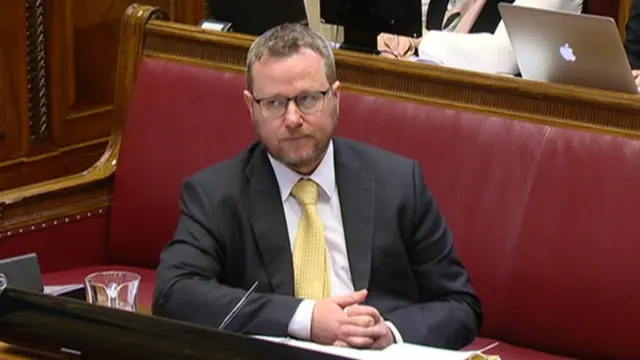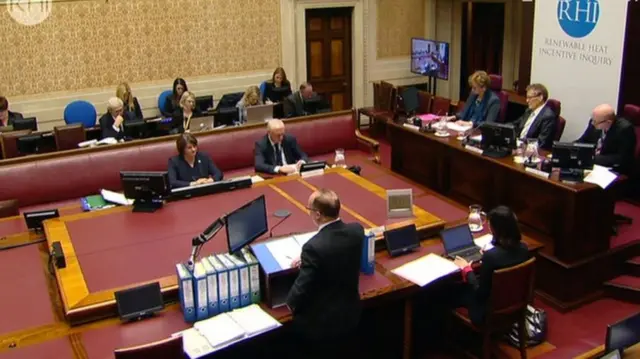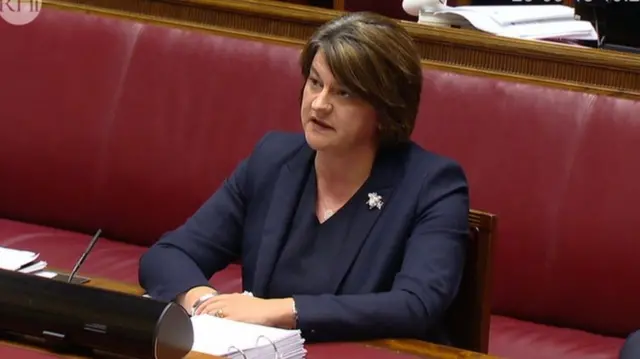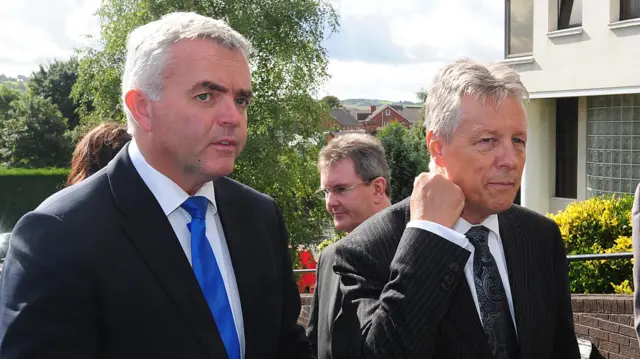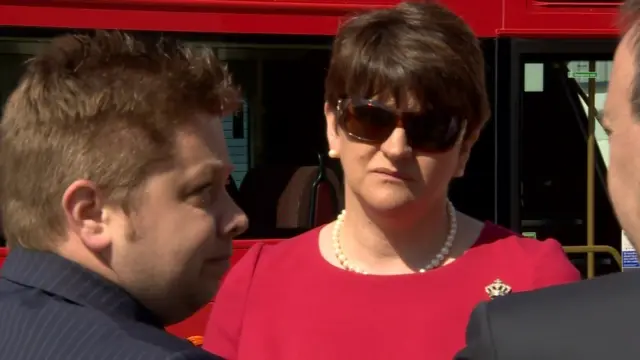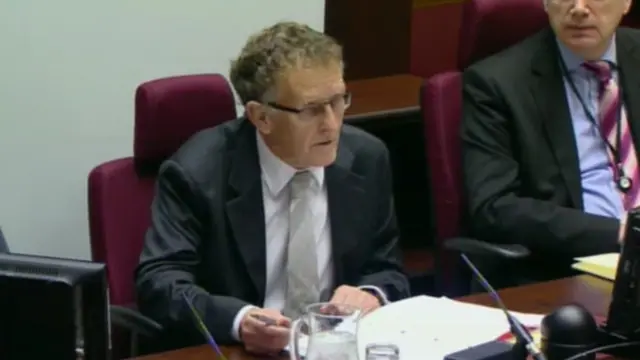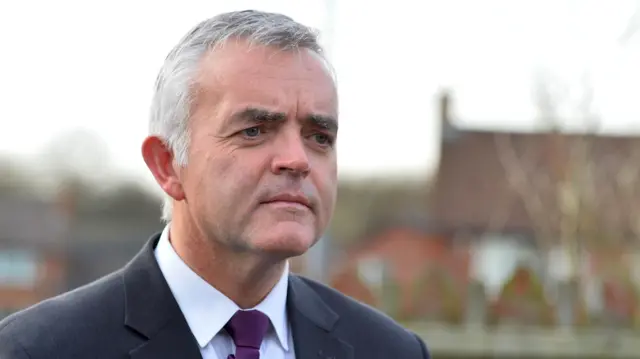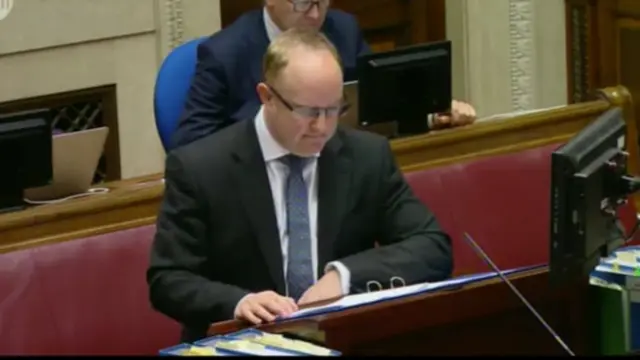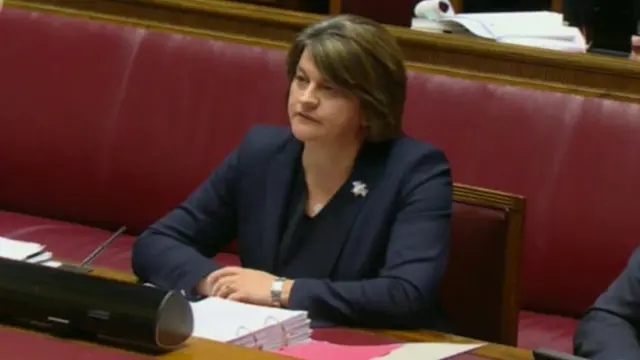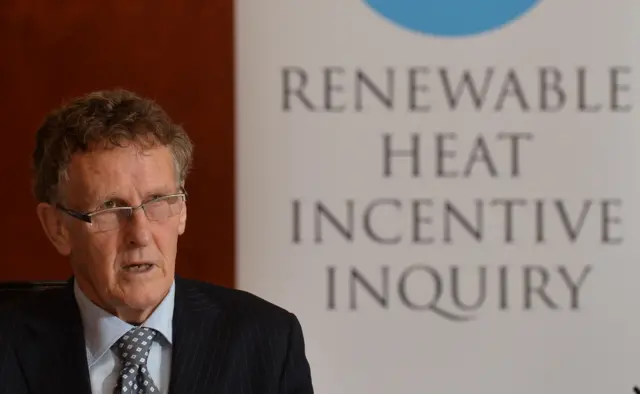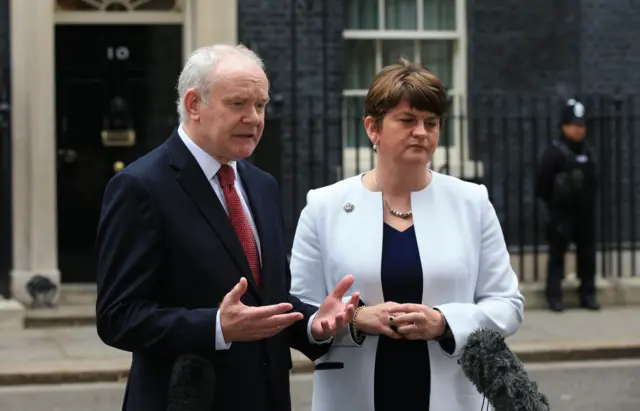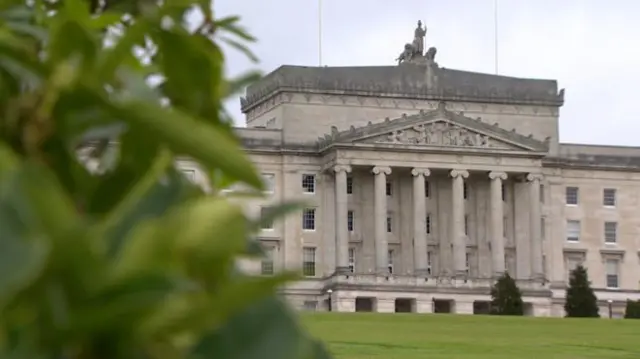'Need for more transparency on ministerial advisers'published at 11:36 BST 25 September 2018
There "should there be more" changes made to how ministerial advisers are appointed at Stormont, accepts Arlene Foster.
She concedes that there are "big learnings" to be made and changes would be needed "in terms of transparency".
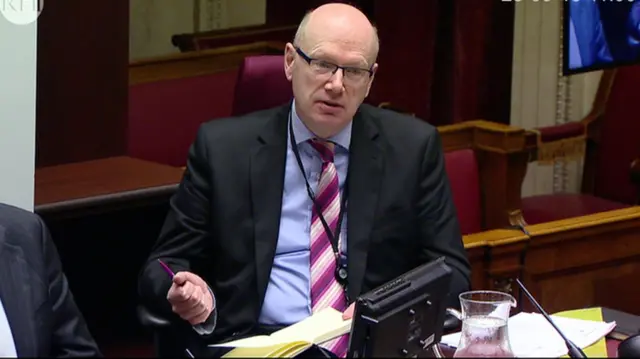 Image source, RHI Inquiry
Image source, RHI InquiryInquiry panellist Dr Keith MacLean (above) says that one of those "learnings" should be "just to stick to the code" for appointing advisers.
Inquiry QC David Scoffield asks whether Stormont parties could be accused of "looking after their own people" in the appointment of advisers "rather than simply getting the best people for the job".
Mrs Foster doesn't believe that's a fair comment and says that over the years some advisers have "come and gone".

